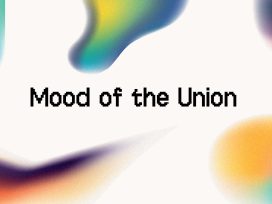After the fall of the Berlin Wall in 1989, Clifford Geertz predicted that the world would be characterized by ‘deep diversity’, ‘a sense of dispersion, of particularity, of complexity and of uncenteredness’ rather than unified world order, as stipulated by the then consensus.
In an age of identity politics and culture wars, Geertz’s insights sound even more powerful today than they did at the time. According to the American anthropologist, our task is ‘to penetrate the dazzle of the new heterogeneity’ and analyse the paradox that confronts us: the world is both more global and more divided than ever in human history. The sense that we find ourselves in ‘a scramble of differences in a field of connection’ is even more immediate, as is the realization that there is a multiplicity of alternative, sometimes conflicting and clashing, visions of the good.
This focal point, inspired by a lecture that Geertz delivered in 1995 at the Institute for Human Sciences in Vienna, summarized in the institute’s magazine, will engage with these issues. It follows the launch of a research programme of the same name at the institute in January 2023, coordinated by Clemena Antonova.
The collection of essays is an extension of earlier focal points ‘Eurasia in Global Dialogue’ (2018-2023, led by Clemena Antonova) and ‘Russia in Global Dialogue’ (2012-2018, led by Tatiana Zhurzhenko). Further texts have been contributed by journals in the Eurozine network.

In collaboration with

The days when Soviet citizens had only three or four TV channels to choose from are long gone. Today, Russians have hundreds of options. So why, asks Maxim Trudolyubov, do they still choose just one?
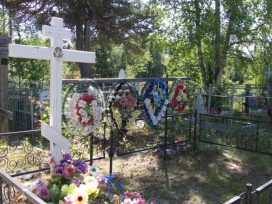
On Yuri Dmitriev
Writer Sergei Lebedev on ‘a man who is saving all of us’
One of Russia’s most significant contemporary writers, Sergei Lebedev, describes the work of Gulag researcher Yuri Dmitriev in a place that both men know well: the far North. Eurozine presents Lebedev’s essay for the first time in English, translated by Antonina W. Bouis.
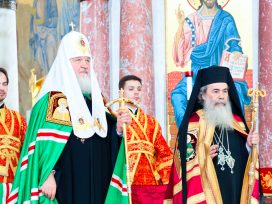
The constitutional separation between church and state in Russia is being ignored, writes Boris Falikov. He asks why the Kremlin’s partnership with the Orthodox church exists, and just how far it extends.

Liberalism as an ideology and a political movement has failed to take deep root in Russian society. It had a chance to do so immediately after the collapse of the Soviet Union, but today the chances for its rebirth are tiny. Instead, “systemic liberals” have become instrumental in ensuring the survival of a personalized power system.
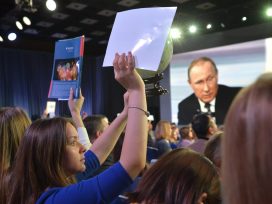
‘Don’t let the facts spoil a good story’
Russian journalism from Gorbachev to Putin
The ethos of journalistic independence that flourished in the USSR during glasnost degenerated, in the following decades, into political partisanship and commercial opportunism. In today’s Russia, self-censorship and tact are regarded as survival skills in a much-diminished sector.
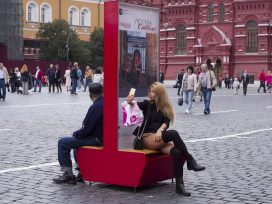
Generation Putin
Why Russian youth has disappointed hopes for democratic change
Russia’s younger generation have failed to build upon the democratic achievements of their predecessors of the 1990s. Surveys show a reversion to Soviet-era conformism, whether as passivity and cynicism, or individualism and status obsession.

Pro-Kremlin propaganda spread through social media is causing a shift to the far-Right among Germany’s native Russian population. Nikolai Mitrokhin considers the implications for German politics in advance of the September elections.
Not content with controlling service providers and intimidating users, the Kremlin is turning to China for technology to filter Russian cyberspace. Beijing is all too willing to lend a hand.
Moscow and the far right in France and Austria
From Plan A to Plan B (and back?)
While Moscow’s support of the Front National appears to be waning in advance of the French presidential elections, its ties with Austria’s far right have been cemented by a unique agreement. What does this say about Russian strategy in western Europe?
Russian hackers were able to interfere in the US election because of public receptivity to anti-establishment messages. Investigative journalists Andrei Soldatov and Irina Borogan argue that distrust in traditional media provides fertile ground for Russian disinformation.
In a new economy, the contours of which we are only beginning to grasp – post-industrial, post-scarcity, post-work – what might the state look like? How will a society of people who do not “go to work” in a twentieth-century sense be governed? Are we in for a “new socialism” or for the dissolution of the traditional nation-state, and are these two scenarios really different? What will happen to those who do not fit into this brave new world?
"Us" and "Them"
Post-Soviet migration in Russia and (re)making symbolic boundaries
Researchers have been too quick to accept the premise that Russia is the second largest immigration state (after the United States). An uncritical stance towards this assertion leads us to ignore the specificities of the post-Soviet context of migration processes. In this context, the phenomenon referred to as “immigration” is, to a significant degree, the same thing as geographic mobility within the bounds of the former USSR. The people that belong to the two sides of this process that are referred to as host society and immigrants were until recently part of the same political and cultural community. What we have observed in the last quarter century is the process of becoming alien, of othering those who, in the memories of generations still living today, were either entirely or partially “ours”. In other words, we are witnessing an about-face in the process of constructing and reconstructing symbolic boundaries, which affects different groups in different ways.
The conflict over YUKOS, between Russia’s two most powerful men at the time, became a turning point in post-Soviet Russian history, writes Tatiana Zhurzhenko. The expropriation of YUKOS opened the way to the annexation of Crimea a decade later; meanwhile, a new Russian masculinity was born.
The haunted house
Contemporary Russia between past and past
Twenty-five years after the USSR’s collapse, writes Maria Stepanova, history has turned into a kind of minefield, a realm of constant, traumatic revision. As a result, Russia is living in a schizoid present where the urgent need for a new language is far from being met.
The pressure valve
Russian nationalism in late Soviet society
In the 1970s and early 1980s, a movement of Russian nationalists attempted to reshape the USSR in a Russian-patriotic spirit. Alexander Mikhailovsky considers the reception of this movement among intellectual circles at the time and whether its legacy still plays a role in official Russian politics today.

